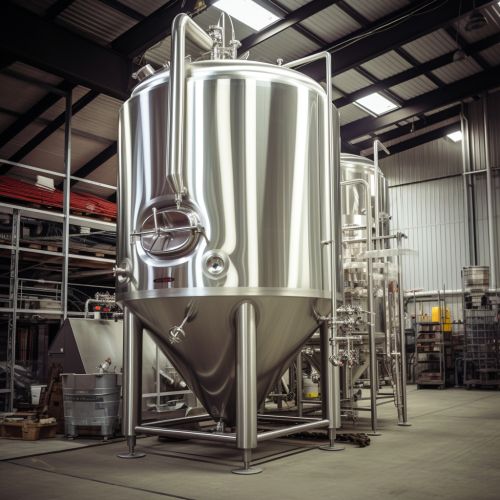Mechanisms of Microbial Biotechnology in Industrial Fermentation
Introduction
Microbial biotechnology refers to the use of microorganisms in industrial processes, such as the production of pharmaceuticals, chemicals, food and biofuels. This field leverages the natural abilities of microbes, or modifies them through genetic engineering, to yield the desired products. Industrial fermentation, a subset of microbial biotechnology, is a process that uses microbial cells to generate products in large quantities.


Microbial Biotechnology
Microbial biotechnology exploits the potential of microbes to produce a wide array of products. The inherent metabolic diversity of microbes, coupled with advances in genetic manipulation, allows for the creation of novel microbial strains for industrial purposes.
Microbial Strains
Microbial strains used in industrial fermentation are often genetically modified to enhance their production capabilities or to produce novel products. Genetic modification techniques include recombinant DNA technology, site-directed mutagenesis, and adaptive evolution.
Metabolic Pathways
Microbes produce products through metabolic pathways, which are sequences of biochemical reactions occurring within the cell. The manipulation of these pathways, through the introduction, removal, or modification of genes, can lead to the production of desired products.
Industrial Fermentation
Industrial fermentation is a process that uses microbial cells to generate products in large quantities. The process begins with the selection of an appropriate microbial strain, followed by its cultivation in a suitable medium under controlled conditions.
Fermentation Process
The fermentation process involves the growth of microbes in a nutrient-rich medium, during which the desired product is produced. The medium, or substrate, provides the necessary nutrients for microbial growth, including carbon, nitrogen, and trace elements.
Fermentation Types
There are different types of fermentation processes, including batch, fed-batch, and continuous fermentation. The choice of process depends on the nature of the microbial strain and the desired product.
Mechanisms of Microbial Biotechnology in Industrial Fermentation
The mechanisms of microbial biotechnology in industrial fermentation involve the use of microbes to convert raw materials into desired products. This is achieved through the metabolic activities of the microbes, which are often enhanced or modified through genetic engineering.
Genetic Engineering
Genetic engineering is a key tool in microbial biotechnology. It allows for the modification of microbial genomes, leading to the creation of novel strains capable of producing desired products. Techniques include recombinant DNA technology, site-directed mutagenesis, and adaptive evolution.
Metabolic Engineering
Metabolic engineering involves the manipulation of metabolic pathways within microbial cells to increase the yield of desired products. This can involve the introduction of new pathways, the enhancement of existing pathways, or the inhibition of competing pathways.
Process Optimization
Process optimization involves the fine-tuning of fermentation conditions to maximize product yield. This includes the optimization of substrate composition, fermentation temperature, pH, and aeration rate.
Applications of Microbial Biotechnology in Industrial Fermentation
Microbial biotechnology has a wide range of applications in industrial fermentation, including the production of pharmaceuticals, chemicals, food and biofuels.
Pharmaceuticals
Microbes are used in the production of a variety of pharmaceuticals, including antibiotics, vaccines, and therapeutic proteins. For example, the bacterium E. coli is often used in the production of recombinant proteins, such as insulin.
Chemicals
Microbes can be used to produce a wide array of chemicals, including organic acids, amino acids, and biofuels. For example, the yeast S. cerevisiae is used in the production of ethanol, a biofuel, through the process of fermentation.
Food
Microbes play a crucial role in the food industry, where they are used in the production of a variety of fermented foods and beverages, such as cheese, yogurt, bread, beer, and wine.
Future Perspectives
The field of microbial biotechnology continues to evolve, with ongoing research aimed at improving microbial production strains and processes. Advances in synthetic biology and systems biology are expected to further enhance the capabilities of microbial biotechnology in industrial fermentation.
